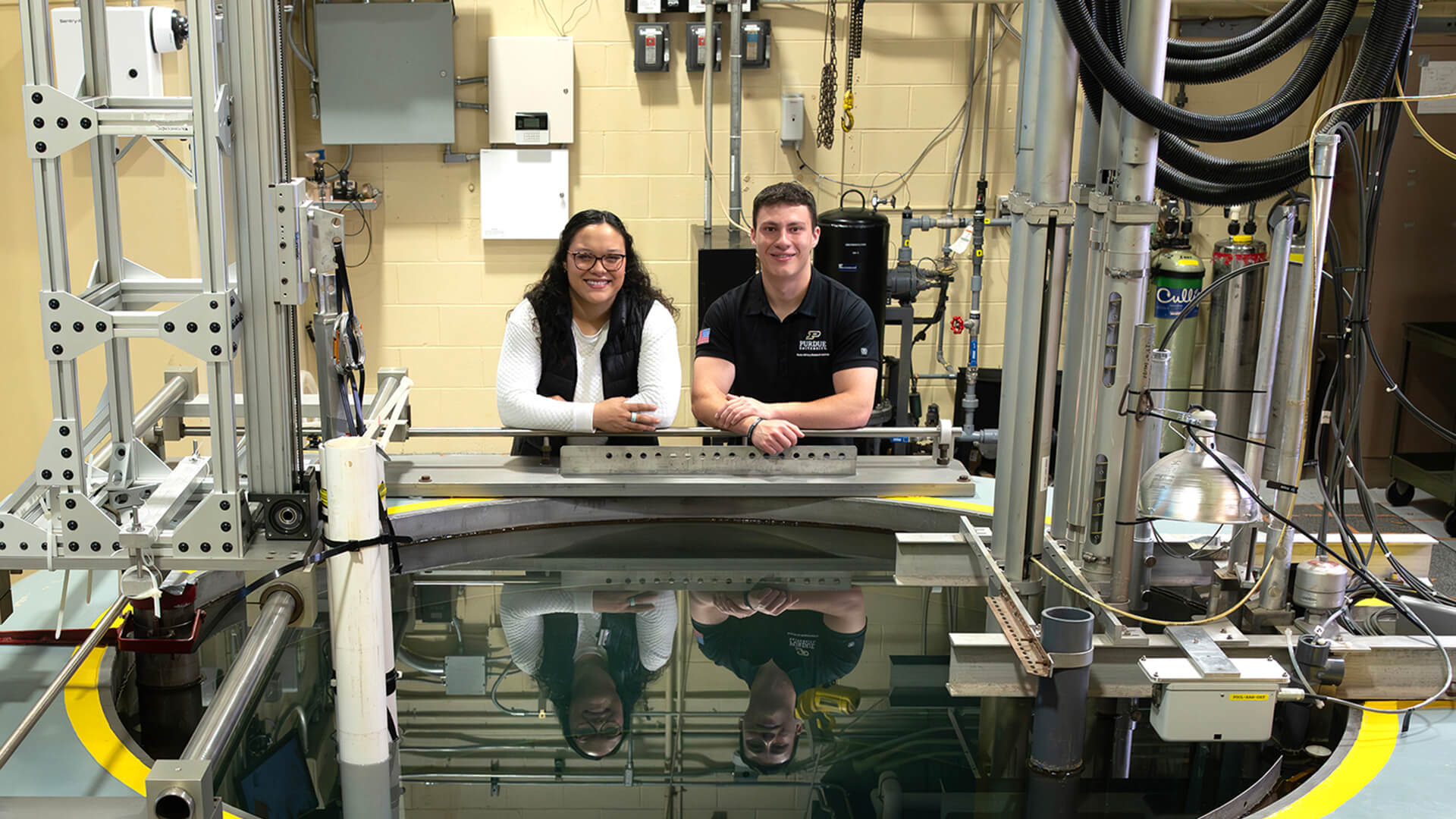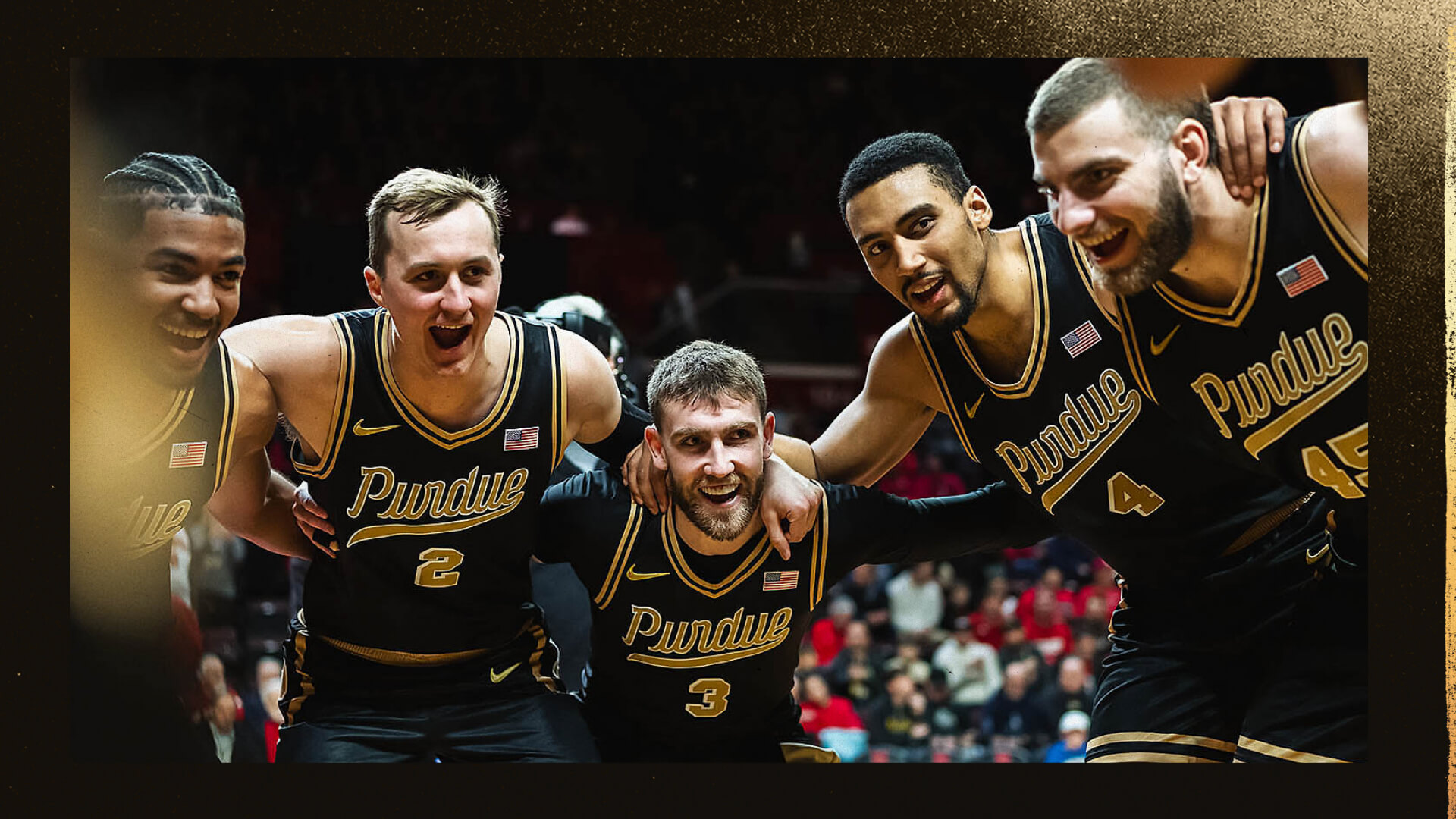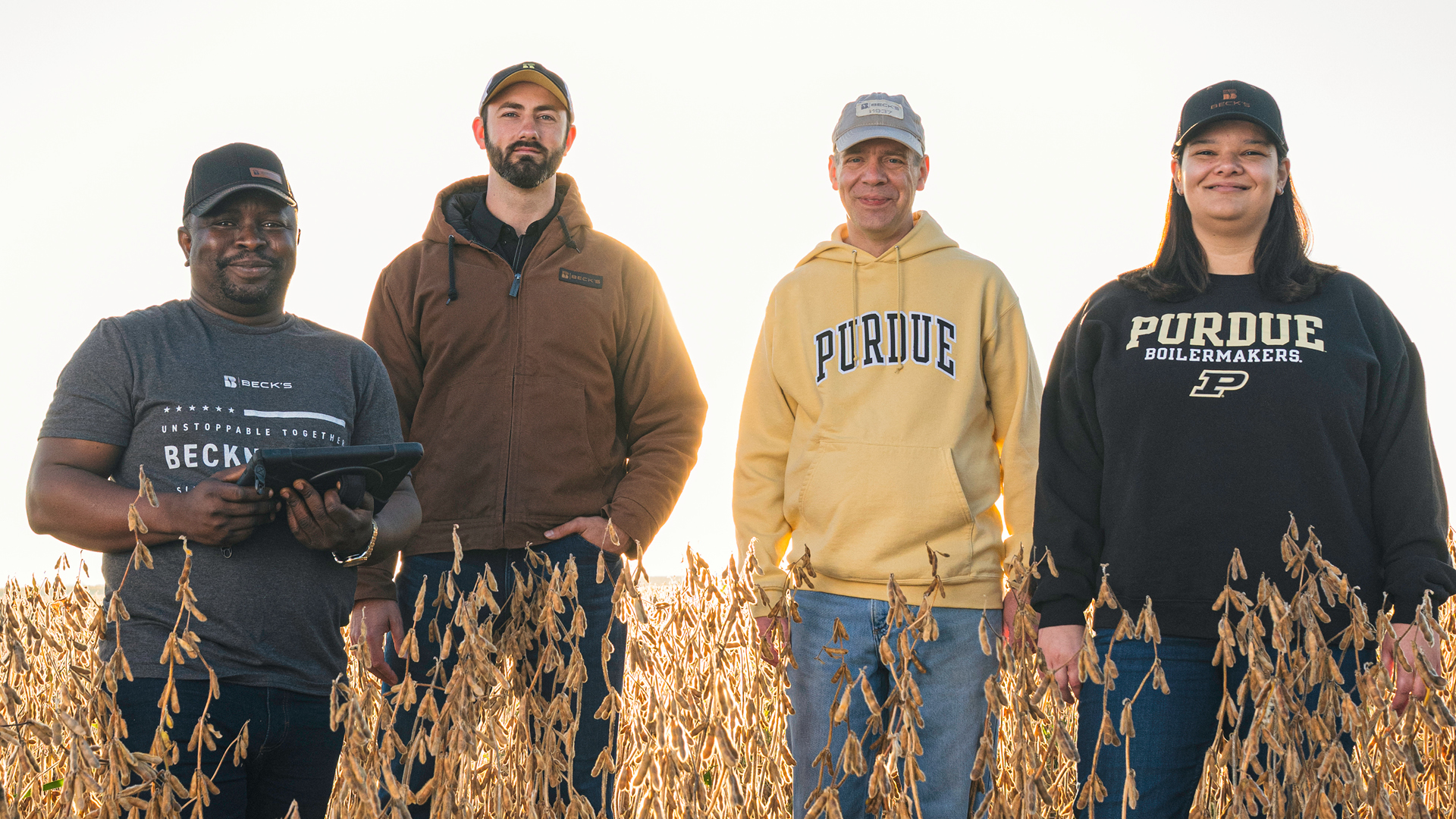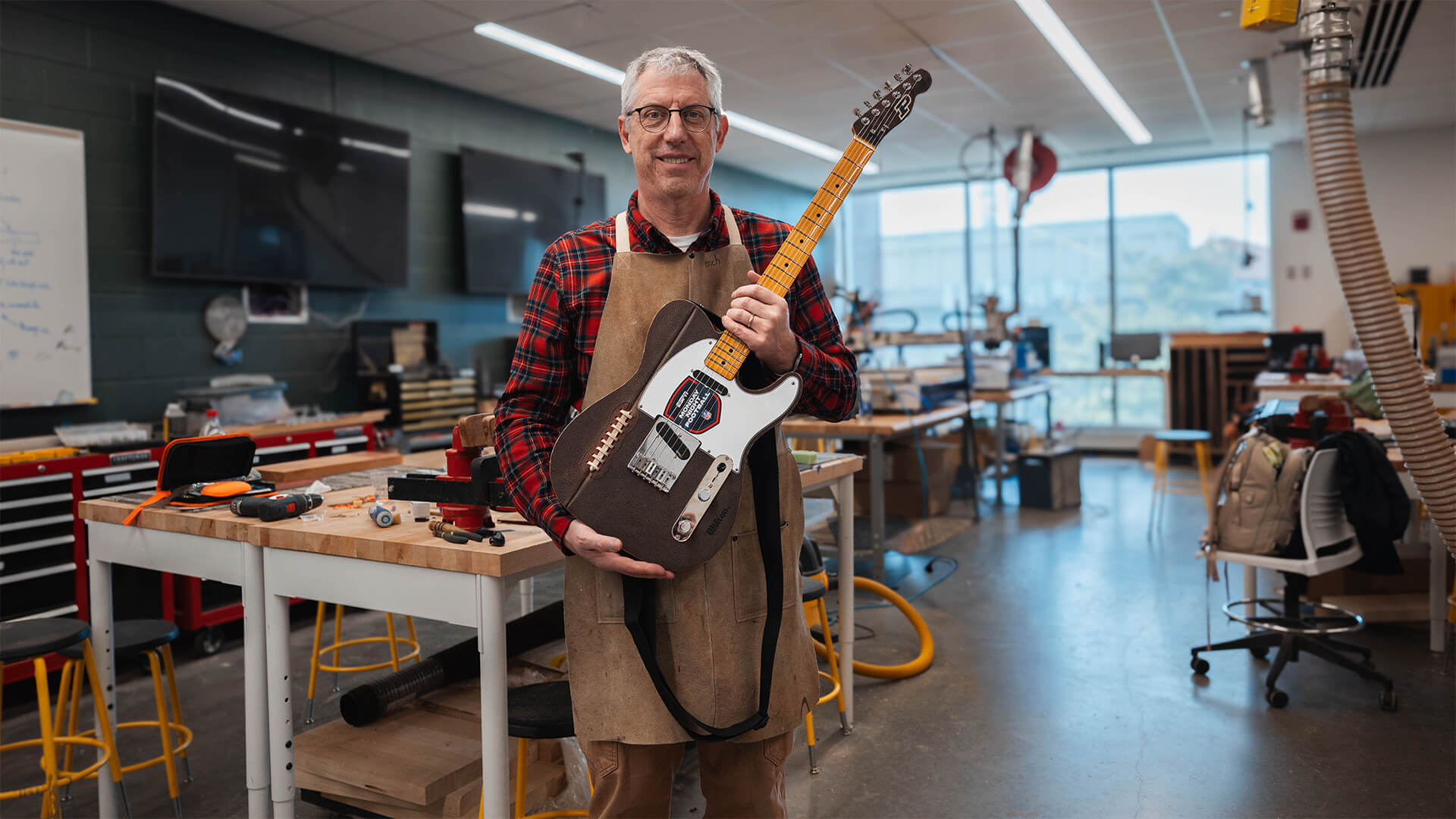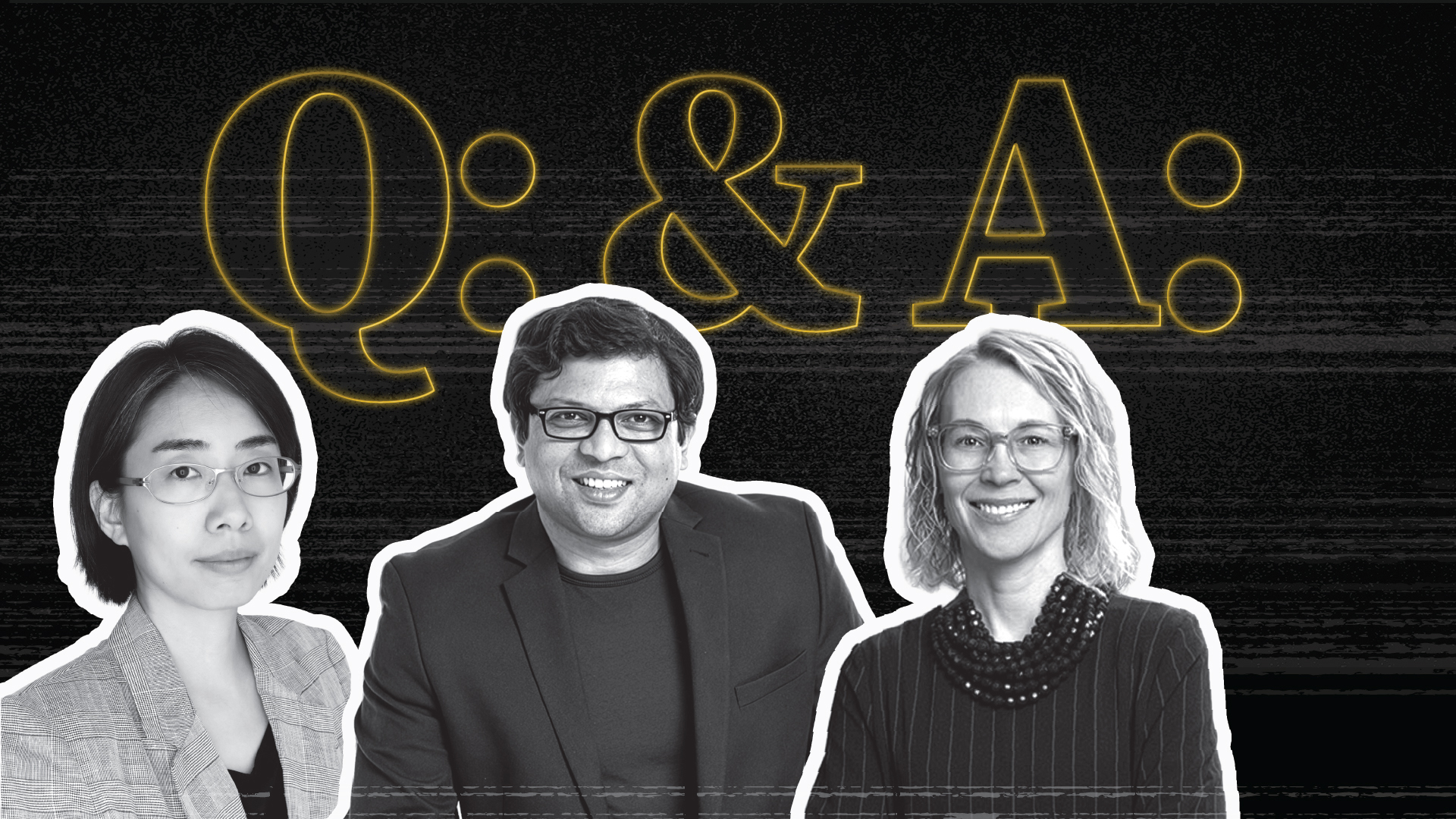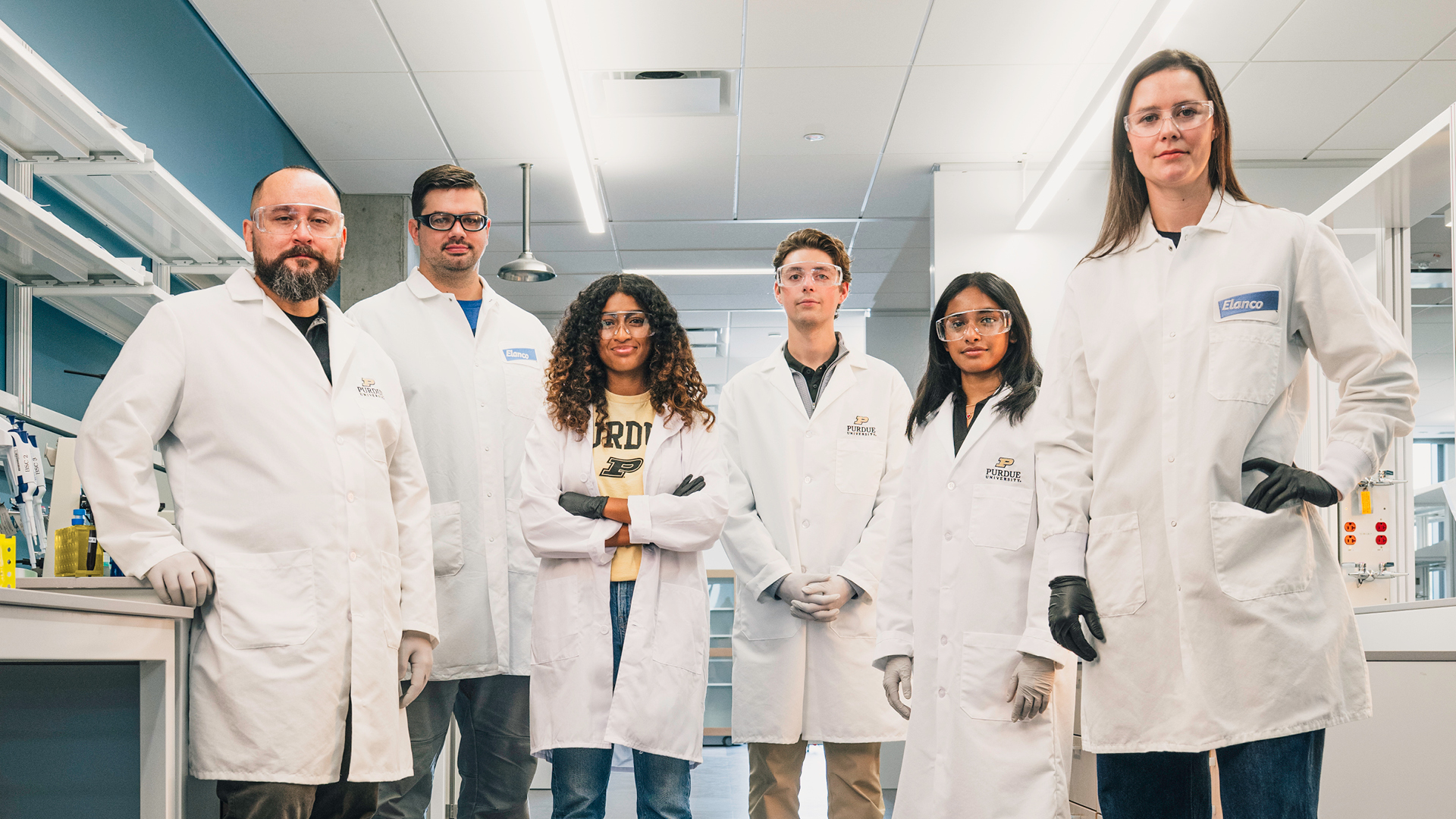Mark Herrmann: from Cradle of Quarterbacks to broadcast booth

Purdue football legend Mark Herrmann has quickly settled into a role as the Boilermakers’ radio color analyst
Intelligent, humble and straightforward.
In the broadcast booth, on the playing field and in Purdue’s athletics department, that is Mark Herrmann.
The former Purdue consensus All-American quarterback (1980) is the newest addition to the Boilermaker football radio crew working with play-by-play announcer Tim Newton. He replaced Pete Quinn, who held the color analyst spot for the previous 32 seasons.
“Mark would never admit it, but he’s a legend,” says Bart Burrell, Herrmann’s boyhood friend, teammate and wide receiver who caught 140 passes — nearly all from Herrmann — during their Purdue careers (1977-80) as the famed Carmel Connection. “He’s our Leroy Keyes now — an approachable, likable Hall of Fame-level football alum working in the athletics department.”

And like Keyes, who passed away in 2021 after working in the athletics department for 26 years, people tend to gravitate to Herrmann despite his laid-back persona.
Herrmann graduated from the Boilermaker program as the NCAA’s all-time passing leader. He could be excused for being a bit full of himself in the football world. But nothing could be further from the truth.
“When he is in our internal meetings, he brings a humble calmness, belief and optimism to everybody,” says Tim House, executive senior associate athletics director/associate vice president for development. “And when he is in front of people externally, it is the same thing.”
Shy at first, leader at last
Herrmann is not a natural broadcaster. He has had to develop his leadership and communication skills since arriving on Purdue’s campus in the fall of 1977 as a skinny but highly regarded quarterback.
“He was a little bit reticent as an 18-year-old quarterback, but he took a lot of responsibility starting all but his first game as a freshman,” recalls Hall of Fame head coach Jim Young, whose first objective when he took the Purdue job in December 1976 was to convince Herrmann to pick Purdue over schools like Notre Dame.
“But I have listened to him broadcast games back in his days with the (Indianapolis) Colts and now Purdue, and among the many things I like about him as a broadcaster is he doesn’t over-talk. And that is absent from many former players in the broadcast booth.”
Herrmann concurs on not being ready for the forefront when he arrived in West Lafayette.
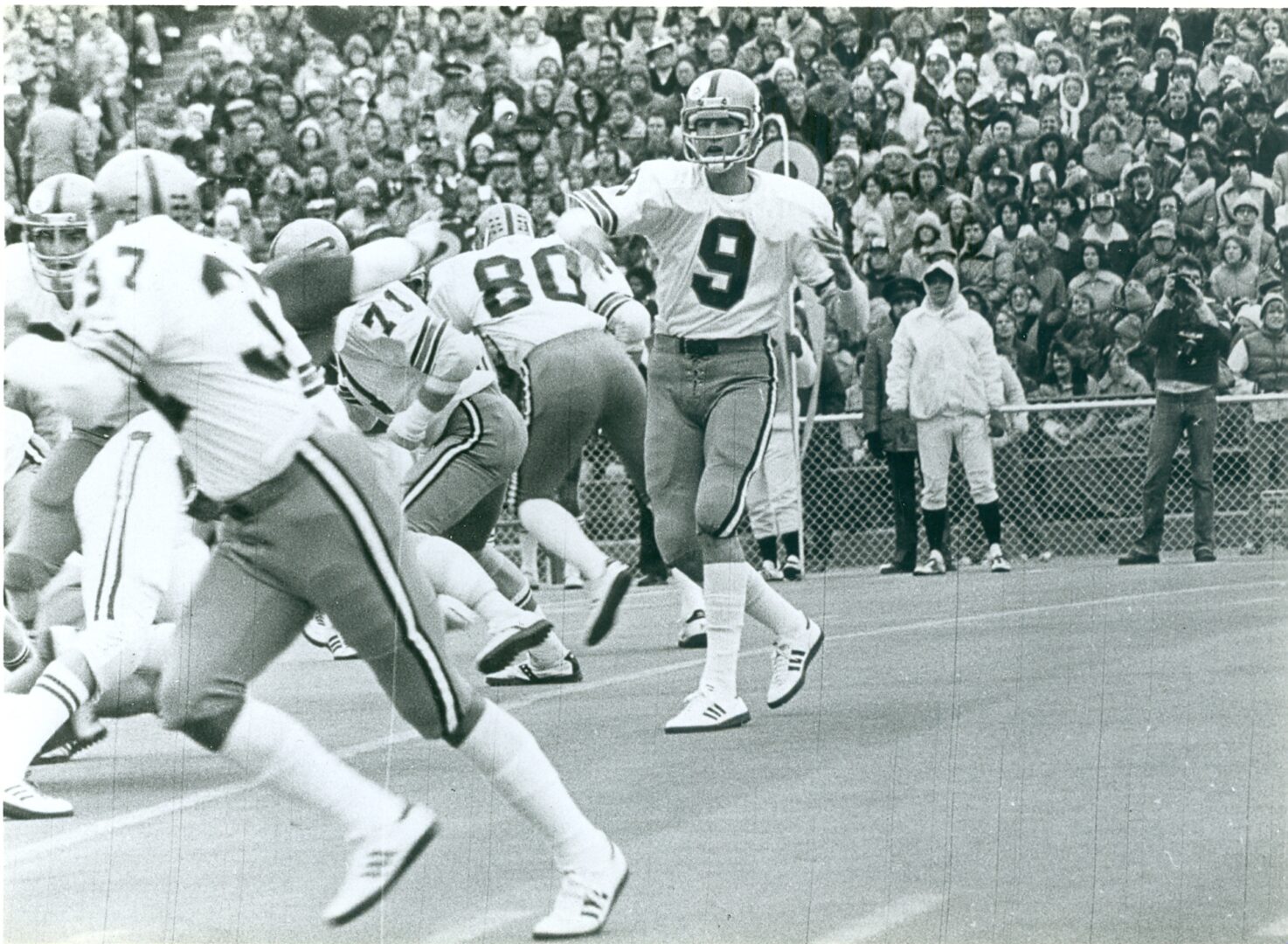
“I think back to my freshman year when somebody interviewed me, and I sounded like the most timid thing; quiet, shy, and I could barely get three, four words out,” Herrmann says. “But by my senior year, I was much more polished and confident.”
Herrmann, who as a Boilermaker was MVP of three straight bowl victories, was always self-assured of his knowledge of the game — his 50-plus years in the game allow him to know it like few others. A decade-plus NFL career, another decade in the broadcast booth with the Colts, and six years doing college games for ESPN have honed Herrmann’s analyst skills.
Taking the reins
[Herrmann has] played the game at the highest level, and he is good at translating that experience and point of view to the listener.
Tim Newton, play-by-play commentator and Director of External Relations & Communications for the mitch daniels school of business
But it was his unique experience in 1980, his senior year, that catapulted his leadership and communication acumen forward.
The Boilermakers were off to a disappointing 1-2 start to the season. In the first half against Miami (Ohio), Herrmann threw a couple of interceptions and Young considered replacing him with freshman Scott Campbell.
Instead, Young chose to do something almost unthinkable in the modern era of college football. He relinquished the play-calling reins to Herrmann, and the Boilermakers responded by winning eight of their last nine games. Subsequently, Herrmann became a consensus All-American and finished fourth in Heisman Trophy balloting.
“He was on his way to becoming college football’s all-time leading passer, and he was our team leader, so I realized I couldn’t bench him,” Young says. “He was, in effect, our offensive coordinator for the rest of that season, and when one thinks about how coordinators now earn over $1 million a year, I guess he could have earned some serious NIL money.”
Yes, Herrmann’s experience as a football radio analyst from the quarterback position makes him uniquely qualified. He knows what everyone’s job should be on the field and can articulate that to his listeners, which makes work easier for his broadcast teammate, Newton.
“He’s played the game at the highest level, and he is good at translating that experience and point of view to the listener,” says Newton, who serves as director of external relations and communications for the Mitch Daniels School of Business.
Herrmann and Newton’s chemistry predates their time in the radio booth. They previously teamed up at the business school, where Herrmann was raising funds before moving to the athletics department in 2020 as director of leadership and alumni engagement.
“He knows it is my air when the play happens and his air to explain what happened once the play is over,” Newton says. “He understands how to fit in, complement and add to what I’ve said. He does that seamlessly.”
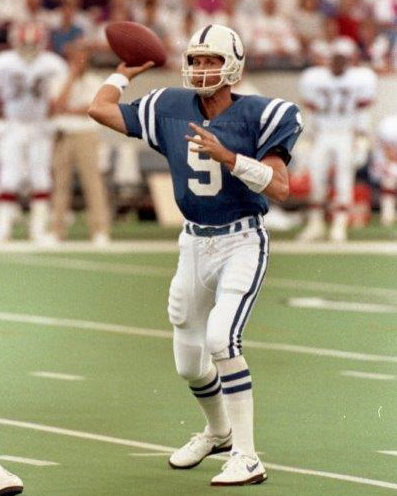
Rooting for the Old Gold and Black
As a member of the Boilermakers’ broadcast team, Herrmann has a strong sense of the appropriate amount of fandom to project while being honest with the audience.
“I go back to what (Purdue Hall of Fame broadcaster) John DeCamp told me years ago, and that is when you do a game, you should show people that you want Purdue to win; that’s OK,” Newton says. “But you have to be honest and credible. Mark does that well in both areas.”
Herrmann has no problem calling it as he sees it, in good times and challenging ones.
“In radio, you are virtually the fans’ eyes and ears on what is going on,” Herrmann says. “So the most enthusiastic we can be, the most insightful, the most honest, and the best timing make for a quality broadcast. We work to deliver that every week, and that is what makes it fun. That is the beauty of radio.”
For House, Herrmann’s radio contributions are just one of the many ways he has helped to advance his alma mater.
“Mark is a complete gentleman,” House says. “He is a good human being and treats everyone with respect. He is where he belongs at Purdue and was a catalyst for a great era of Purdue football (when he played). All he has done since is work to make Purdue better every day.”
Written by Alan Karpick, publisher of GoldandBlack.com.

